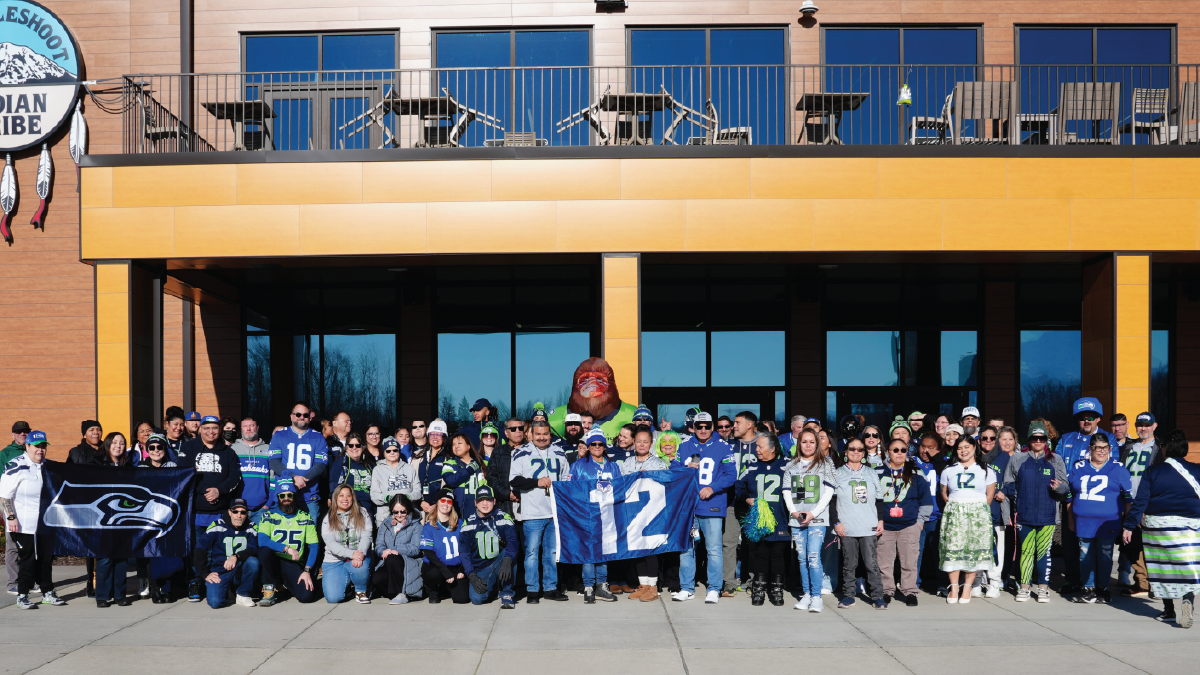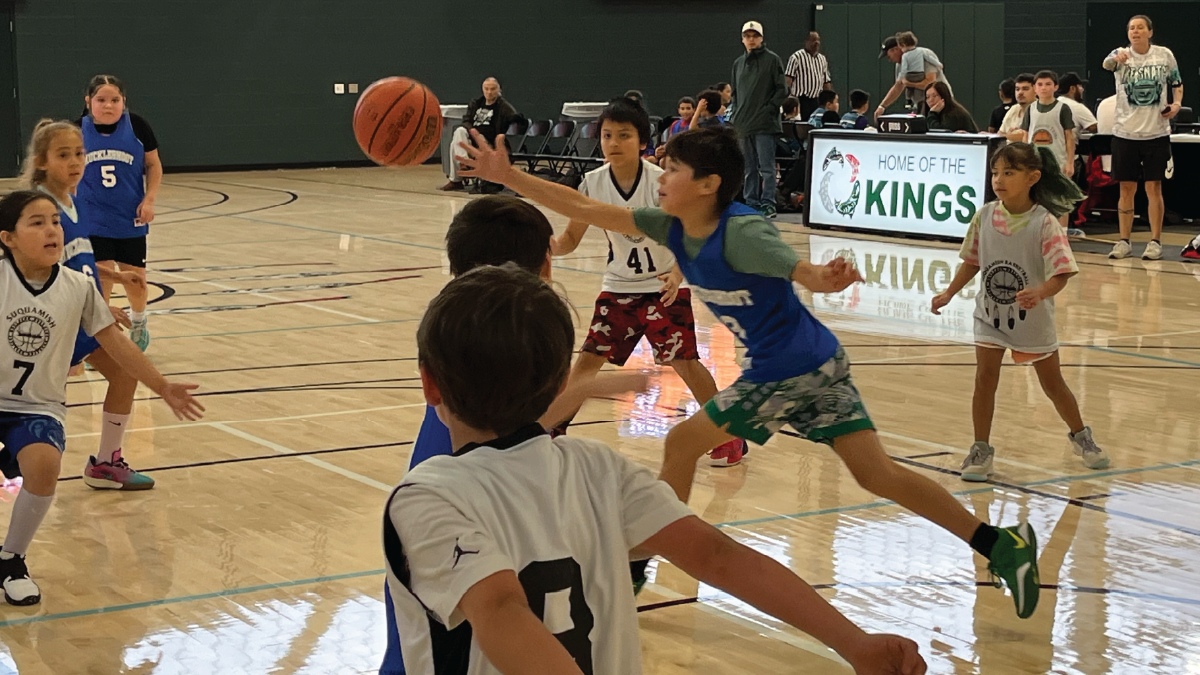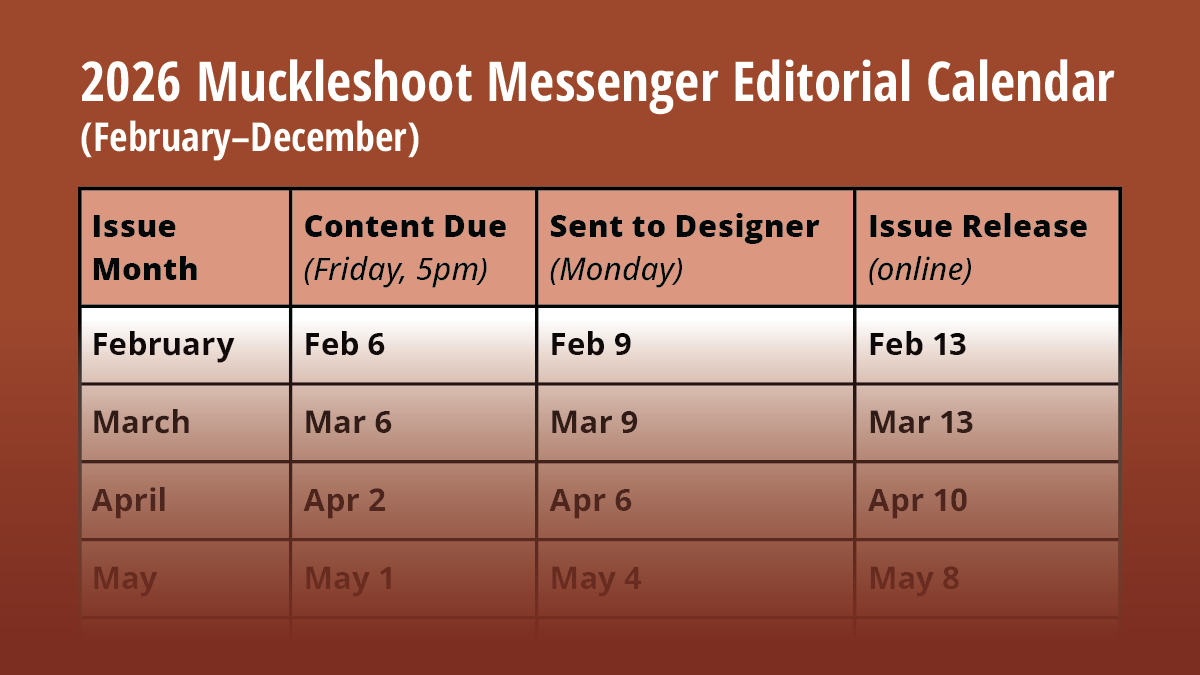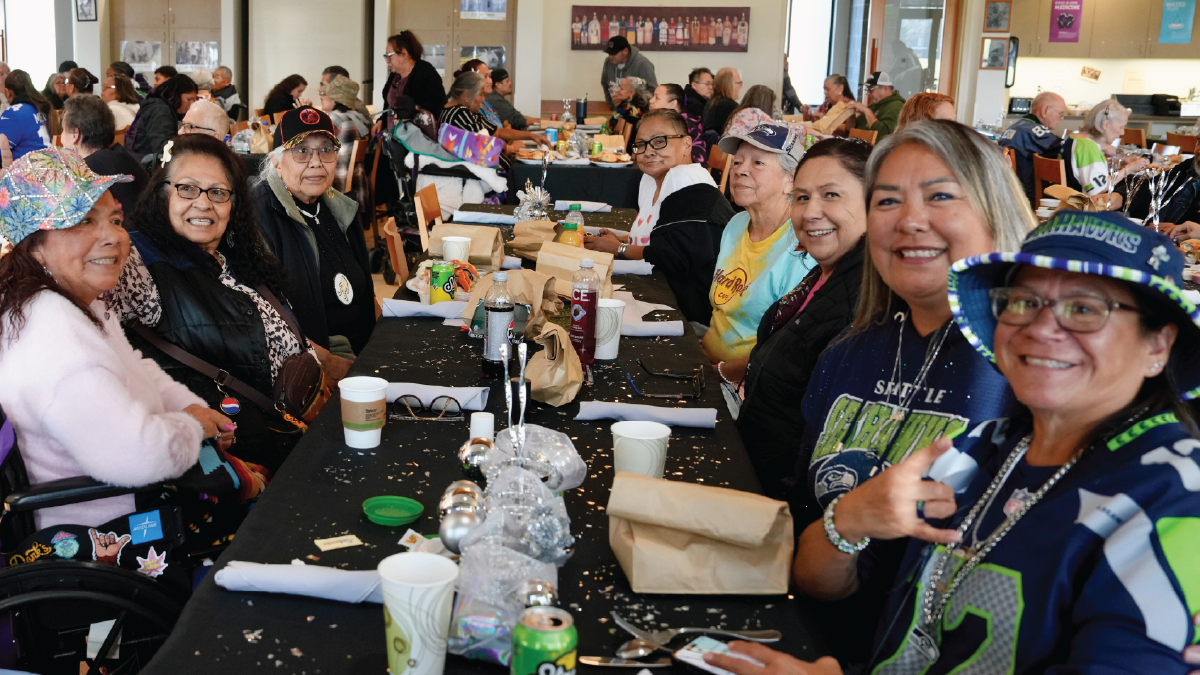
OLYMPIA — The 2024 Washington State Legislature wrapped up its work on March 7, following a hectic 60-day session. In addition to regular bill action and budgets, the Legislature passed three of the six initiatives-to-the-legislature that were certified earlier this year.
Specifically, the Legislature enacted initiatives rolling back limits on police pursuits (I-2113), reiterating opposition to income taxes (I-2111), and providing parents with a right to review educational materials, receive certain notifications, and opt out of sexual health education (I-2081). The remaining three initiatives concern a repeal of the Climate Commitment Act (I-2117), a repeal of the Capital Gains Tax (I-2109), and an opt-out of the long-term care tax (I-2124), and will all head to the ballot this November.
Tribal Gaming. Major accomplishments for the Tribe this year included protecting tribal gaming, securing funding and policy changes regarding opioid and fentanyl response, protecting salmon habitat, making advances in our education system, continuing to address missing and murdered indigenous women and people, and securing state investments in key projects and programs of interest to the community.
This session saw a renewed effort by non-tribal gaming entities to try to expand their offerings to include sports wagering. Legislation was reintroduced in both the House and Senate to authorize sports wagering at non-tribal locations such as restaurants and bars that already offer limited gaming options as a commercial stimulant. HB 1630 & SB 5587 highlight the persistent efforts by non-tribal interests to compete against tribal government gaming.
The Muckleshoot Tribe successfully worked with lawmakers from both sides of the political aisle to ensure neither bill advanced in 2024. The Tribe will remain diligent on this in order to ensure that tribal gaming can continue to generate the funds necessary to provide essential government services such as housing, education, and health care for tribal members.
Fentanyl. The 2024 session saw a great deal of attention on the opioid and fentanyl crisis. Muckleshoot supported and helped pass several key bills and budget investments dealing with various aspects of this issue. Of utmost significance, the Tribe secured $3.5 million in state funds to help expand its We Care Daily Clinic operation into Pierce County. These facilities provide invaluable support for those suffering from addiction and substance abuse. Moreover, the Tribe supported SB 6099, which creates the Tribal Opioid Prevention and Treatment Account to provide ongoing support for the opioid epidemic in tribal communities.
The Tribe also worked with legislators to see the passage of HB 1956, which directs the Department of Health to develop, implement, and maintain a statewide drug overdose prevention and awareness campaign to address the drug overdose epidemic, while also requiring the state to develop age-appropriate substance use prevention and awareness materials for school and classroom use. More efforts will be needed in the future, but 2024 saw progress on this critical matter.
Environment & Natural Resources. In the environment and natural resources arena, the Tribe successfully helped secure $700,000 in funding to the Dept. of Fish & Wildlife (WDFW) for the continuation of efforts to rebuild salmon runs in the Lake Washington basin through suppression of predatory fish species. WDFW will continue its work through 2025 to remove non-native species, and assess the effects of recreational anglers on salmon runs through the basin.
The Legislature also passed several creative policies meant to help salmon habitat, including HB 2293 that creates an Avian Salmon Predation Work Group to identify avian species contributing to predation of threatened and endangered juvenile salmon and identify remedies, and HB 2045 that authorizes individuals and businesses to partner with the state to financially support local fish barrier removal projects and receive recognition via signage at the site or by receiving a plaque from the Governor.
The Legislature also passed SB 5828, which requires court commissioners for water rights adjudications receive training on water law, Indian law, water science, and cultural awareness. While none of these policies are silver bullets, the Tribe continues to support advancing the issue and helping move the state forward in its efforts to address habitat and salmon recovery.
Education. The 2024 session was also active on the education front. In addition to the fentanyl and substance use prevention education bill previously mentioned, the Tribe supported legislation that creates grant programs for establishing or expanding dual language education programs and tribal language education programs in public schools (HB 1228), legislation that allows tribal compact schools more flexibility in curriculum requirements (HB 2335), and a bill establishing a Native American apprentice assistance program for tribal members (HB 2019).
Each of these bills passed and became law, as did legislation to honor the late Senator John McCoy from the Tulalip Tribes by renaming the Since Time Immemorial Curriculum in his honor, including codifying reference to his traditional name (lulilaš) (HB 1879).
MMIW/P. Continued advancements on the critical issue of missing and murdered indigenous women and people (MMIW/P) were also made in 2024. This session, the Legislature passed SB 6186, which aims to aid law enforcement in determining whether a missing person is may still be alive by requiring better inter-agency cooperation between the Department of Social & Health Services, the Health Care Authority, and law enforcement.
Additionally, the Tribe supported the inclusion of $350,000 in the state budget for the Attorney General’s Office to create an indigenous demographic data collection work group within the MMIW/P Task Force, as well as another $500,000 to help local jurisdictions conduct DNA testing on unidentified remains, including forensic genealogy DNA testing when no matches can be found. These efforts are part of the ongoing work by the Task Force, with more likely to come in future years.
ADDITIONAL PROJECTS. Lastly, in addition to obtaining funding for Muckleshoot’s We Care clinics, and the funding to WDFW for salmon predation efforts, the Tribe was able to work with lawmakers to secure additional funding for other key projects and programs.
Of note, the Legislature approved $500,000 to the Tribe for fast electric vehicle charging stations near the Casino and Big Nation Station (available January 1, 2025, contingent upon I-2117 failing in November).
An additional $1.35 million in new funding was approved for the Horse Racing Commission, which will aid the operations at Emerald Downs. And in the transportation budget, the Legislature allocated $1.804 million for the State Dept. of Transportation to continue the SR 164 East Auburn Access project, with WSDOT specifically directed to work with the Muckleshoot Tribe on project delivery (an additional $11.598 million is projected 2025-27).
The Tribal Council, directing the work of the Intergovernmental Affairs Department, will continue advocating in Olympia for policies and funding that protect Tribal interests and advance the causes important to tribal members and our community at large.

The last few Fridays of the season brought Muckleshoot employees out dressed in their best Seahawks gear for a group photo to show that the 12’s spirit runs deep.

The two core components of the 7th annual Salmon Jam tournament are teaching kids the dangers of smoking cigarettes and vaping, and empathy for others.

We love hearing from our community. To help us share stories in a timely and organized way, all content for the Muckleshoot Messenger is due by 5pm on the first Friday of each month.

Elders from the Muckleshoot Indian Tribe and their loved ones gathered together on Jan 16 at the Elders complex to celebrate the New Year. The gathering was a joyful and welcoming community celebration.
The Muckleshoot Messenger is a monthly Tribal publication. Tribal community members and Tribal employees are welcome to submit items to the newspaper such as announcements, birth news, birthday shoutouts, community highlights, and more. We want to hear from you!